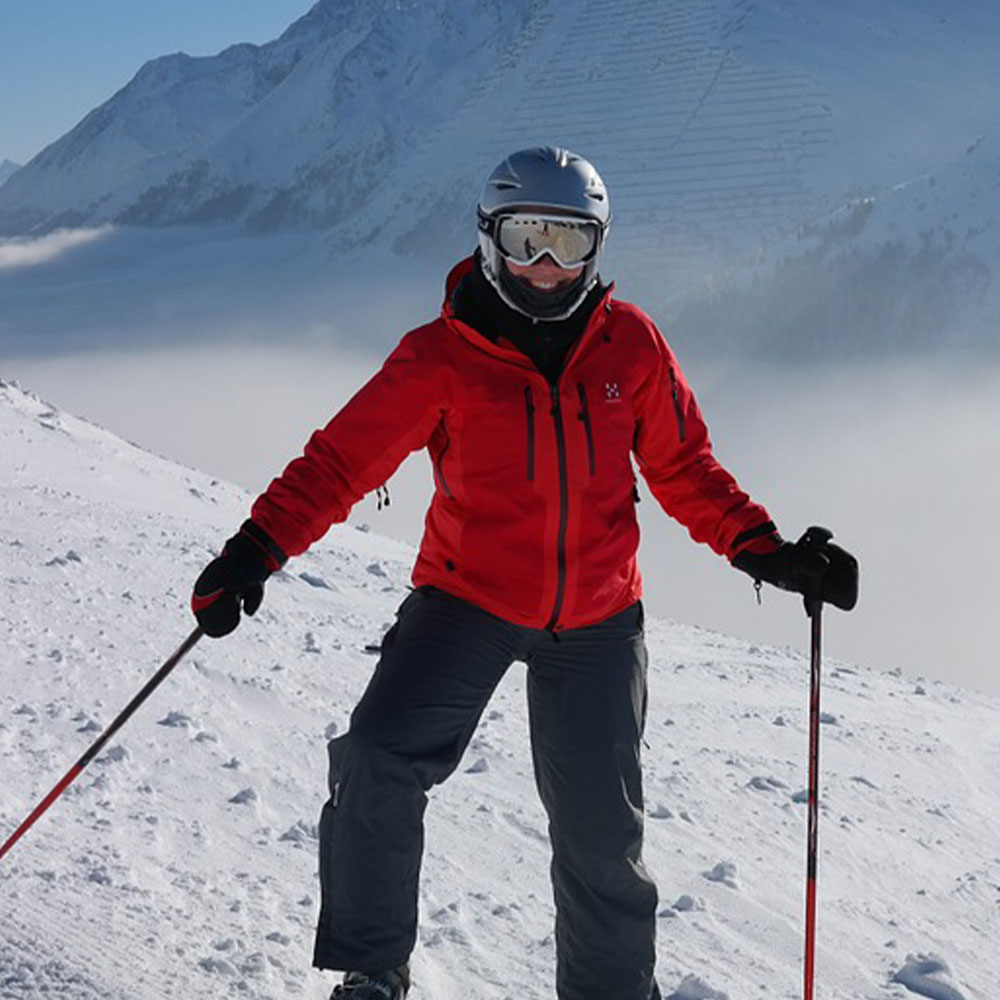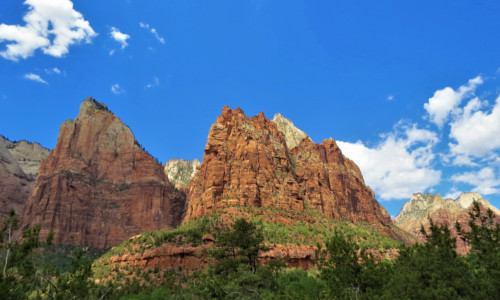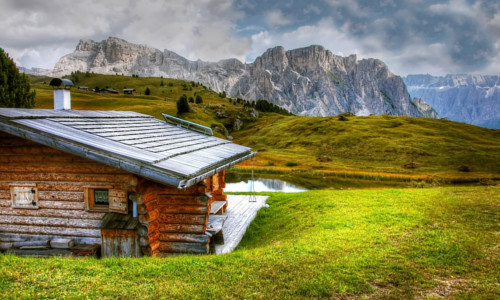How to Deal with Post-Hike Depression
Author

A keen runner, skier and nuts about cycling. Karl lives in Cumbria, where he loves encouraging his two children to follow in his outdoor lifestyle. Whilst out and about keeping active, Karl keeps a diary and shares it with Outdoor Look.
 Being a traveler is never easy. It becomes even tougher when you have been riding or driving incessantly for long hours. The body becomes so accustomed and used to long hours of riding and driving that we are left confused when we do anything but travelling. We literally forget how it is to walk with those 2 legs. I experienced something similar after my trip to America to hike the 2,600 miles of the famed Pacific Crest Trail.
Being a traveler is never easy. It becomes even tougher when you have been riding or driving incessantly for long hours. The body becomes so accustomed and used to long hours of riding and driving that we are left confused when we do anything but travelling. We literally forget how it is to walk with those 2 legs. I experienced something similar after my trip to America to hike the 2,600 miles of the famed Pacific Crest Trail.
On having returned back home after finishing my thru-hike, I felt completely isolated and alienated. I was unable to face the new reality of life and the fact of not walking north every single day made me a solitary soul. I had become so dis-engaged that I did not even think about it or talk about it to anyone. Unexpectedly, it just ended one day. That is when I thought of talking about it and realised that I was not alone.
Expectations Can Be Challenging Too
It was during the end of my California hike when I made friends with a fellow hiker, who gave me some company on the last 1000 miles of my hike. Conversations on topic such as nature, nation, mental health, and mood swings happened. It was during this time that I got familiar with the reality. They told me that they suffer from bipolar disorder and that thru-hiking provides them relief.
Unaware of the after effects of finishing a trail, they felt and experienced no joy even after having completed the Appalachian Trail with the classic summit of Mount Katahdin. There was no sense of pride and triumph. This was followed by solitary depression and a downhill of emotions. Suicidal thoughts took over their minds. They decided that going for another thru-hike would be a solution to this and thus, planned another thru-hike with better tools in order to survive the after effects of hiking.
I met another hiker at the beginning of my hike. He too had undergone a phase of depression after-trail. Instead of feeling motivated and productive, all he could feel was ashamed, conflicted, unmotivated and depressed. This was completely the opposite of what he had expected. There was a sense of loss.
Post-hike Depression
In order to know the root cause of such behavior I had a word with my doctor. He told me that a lot of athletes have consulted him for personal issues and post-hike issues.
As per him, there can be a lot of factors that lead to such unexpected behavior. One major factor is financial stress. Many hikers lose any sort of stable income when they decide to set out on a hiking expedition. A sense of loss and belonging too creeps in. This occurs due to loss of the endorphins that their brain gets used to while they are experiencing a sense of companionship along with their fellow hikers.
 Signs and Symptoms
Signs and Symptoms
According to my doctor, the only way of diagnosing such an issue is when thru-hikers begin to disintegrate themselves with the society and people around them, when they do not love to be in anyone’s company, but enjoy their alone time. Having suicidal thoughts more often and not being willing to get into any kind of job or work too are signs of depression and post-hike effects. Professional assistance should be considered at such times.
How to Manage Post-Trail Depression?
1. Plan post-hike: Chidester suggests that one should always make sure they have post-hiking ideas. To know your routine after all your hiking adventures can be helpful to keep away from any negative impacts.
2. Exercise: Looking for alternatives to stay fit also helps fight depression.
3. Talk and share experiences: This can provide you with relief. Sharing things and talking of hiking experiences with friends and family or other hikers helps you maintain a sense of belonging.
4. Be realistic: Being aware of post-hiking symptoms is an advantage as you are not surprised with what will come after.
5. Search for happiness: Bitterness is never the key to happiness. De-stress by thanking people around you, and look for things that make you happy.
6. Create routines: Preventing any kind of post-hiking symptoms is much easier when one follows a particular routine and has a healthy schedule prepared.
7. Get professional help: Do not wait for any professional assistance. Seeking professional help can be therapeutic, and should be sought out especially if you are having thoughts of hurting yourself.
Author

A keen runner, skier and nuts about cycling. Karl lives in Cumbria, where he loves encouraging his two children to follow in his outdoor lifestyle. Whilst out and about keeping active, Karl keeps a diary and shares it with Outdoor Look.
Categories
- Sport (28)
- Product Reviews (3)
- Team Outdoor Look (7)
- Mike Wild (2)
- Mike Payton (2)
- Suse Hammond-Pears (3)
- Snowboarding (12)
- Latest Offers (105)
- Shop Talk (1)
- Competitions (7)
- Walking (413)
- Lifestyle Fashion (8)
- Travel (86)
- Kit Guides (176)
- Workwear Clothing (6)
- Safety Workwear (4)
- Health/Fitness (289)
- Skiing (91)
- Great Outdoors (1316)
- Cycling (92)
- January 2025
- December 2024
- November 2024
- October 2024
- September 2024
- August 2024
- July 2024
- June 2024
- May 2024
- April 2024
- March 2024
- February 2024
- January 2024
- December 2023
- November 2023
- October 2023
- September 2023
- August 2023
- July 2023
- June 2023
- May 2023
- April 2023
- March 2023
- February 2023
- January 2023
- December 2022
- November 2022
- October 2022
- September 2022
- August 2022
- July 2022
- June 2022
- May 2022
- April 2022
- March 2022
- February 2022
- January 2022
- December 2021
- November 2021
- October 2021
- September 2021
- August 2021
- July 2021
- June 2021
- May 2021
- April 2021
- March 2021
- February 2021
- January 2021
- December 2020
- November 2020
- October 2020
- September 2020
- August 2020
- July 2020
- June 2020
- May 2020
- April 2020
- March 2020
- February 2020
- January 2020
- December 2019
- November 2019
- October 2019
- September 2019
- August 2019
- July 2019
- June 2019
- May 2019
- April 2019
- March 2019
- February 2019
- January 2019
- December 2018
- November 2018
- October 2018
- September 2018
- August 2018
- July 2018
- June 2018
- May 2018
- April 2018
- March 2018
- February 2018
- January 2018
- December 2017
- November 2017
- October 2017
- September 2017
- August 2017
- July 2017
- June 2017
- May 2017
- April 2017
- March 2017
- February 2017
- January 2017
- December 2016
- November 2016
- October 2016
- September 2016
- August 2016
- July 2016
- June 2016
- May 2016
- April 2016
- March 2016
- February 2016
- January 2016
- December 2015
- November 2015
- October 2015
- September 2015
- August 2015
- July 2015
- June 2015
- May 2015
- April 2015
- March 2015
- February 2015
- January 2015
- December 2014
- November 2014
- October 2014
- September 2014
- August 2014
- July 2014
- June 2014
- May 2014
- April 2014
- March 2014
- February 2014
- January 2014
- December 2013
- November 2013
- October 2013
- September 2013
- August 2013
- July 2013
- June 2013
- May 2013
- April 2013
- March 2013
- February 2013
- January 2013
- December 2012
- November 2012
- October 2012
- September 2012
- August 2012
- July 2012
- June 2012
- May 2012
- April 2012
- March 2012
- February 2012
- January 2012
- December 2011
- November 2011
- October 2011
- September 2011
- August 2011
- May 2010
- April 2010
- March 2010
- February 2010
- January 2010
- November 2009
- October 2009
- September 2009
Submit a Comment